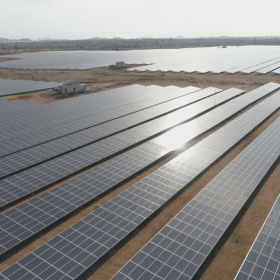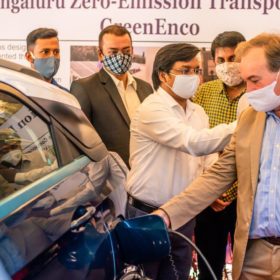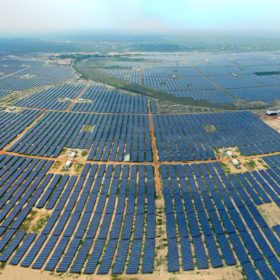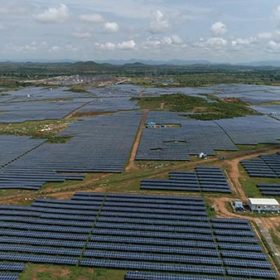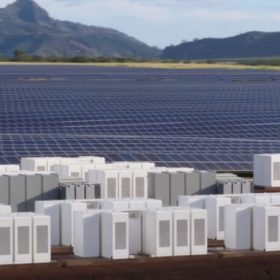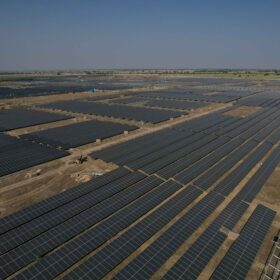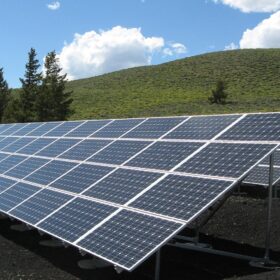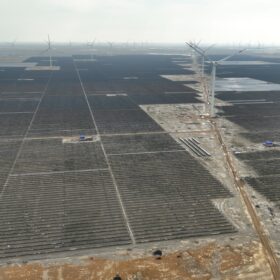BHEL secures its first overseas EPC contract for grid-connected solar plant
The state-run has been awarded an 8 MWac grid-connected solar power plant in Mauritius on an engineering, procurement, and construction (EPC) basis.
NTPC enlisting EPC bidders for ground-mount and floating solar plants
The enlisted players will be invited to participate in the upcoming tenders for the installation of floating and ground-mounted solar power projects. April 6 is the deadline to submit applications for enlistment.
Renewables’ share in electricity generation must grow 55-fold for India to achieve net-zero emissions by 2050
A new report presents four alternative scenarios for India to achieve net-zero emissions, highlighting that the effort required would be very high for a scenario with 2030 as a peaking year for emissions and 2050 for net-zero.
India’s $122bn energy stimulus spending may benefit fossil fuels most
A report says India’s energy investment commitments over the last 14 months largely feature measures for power transmission and distribution that could benefit greenhouse-gas-producing fuels more than renewables.
Adani Green to acquire Canadian developer SkyPower Global’s 50 MW solar asset in India
The Indian developer has signed an agreement with the Canadian developer to acquire its 50 MW Telangana solar project at an enterprise value of around INR 317 crore.
IISc sets up off-grid EV charging station powered by Vikram Solar modules
The Indian Institute of Science (IISc), Bangalore has set up a solar-powered charging station to conduct the system’s impact assessment. The system—designed by UK-based renewable energy advisor GreenEnco—uses Vikram Solar’s 16 mono PERC solar modules of 400 Wp each, a hybrid inverter, and battery storage.
Adani Green Energy raises US$ 1.35 billion in debt funding
The developer has secured the revolving fund from 12 international banks. It would use the amount to initially finance its 1.69 GW hybrid portfolio of solar and wind projects to be set up in the Indian state of Rajasthan.
TCIL seeks EPC partners for 5 GW solar tendered under CPSU Scheme
Telecommunications Consultants India (TCIL) has issued an expression of interest to select EPC partners as it intends to bid for the 5 GW grid-connected solar capacity tendered for state-run generators. Installers have until March 24 to lodge their interest with TCIL.
GoodWe is the biggest rooftop solar inverter supplier in India
The Chinese manufacturer commanded a 17% share of the total 3268 MW of rooftop PV inverter shipments in India in the January-December 2020 period.
Could India establish itself as the global leader in energy storage?
In India, the lack of suitable fiscal incentives and relevant experience, combined with high upfront capital costs, has hindered the adoption of battery energy storage systems (BESS) in comparison to other developed countries. However, there is potential for the country to take the lead.


